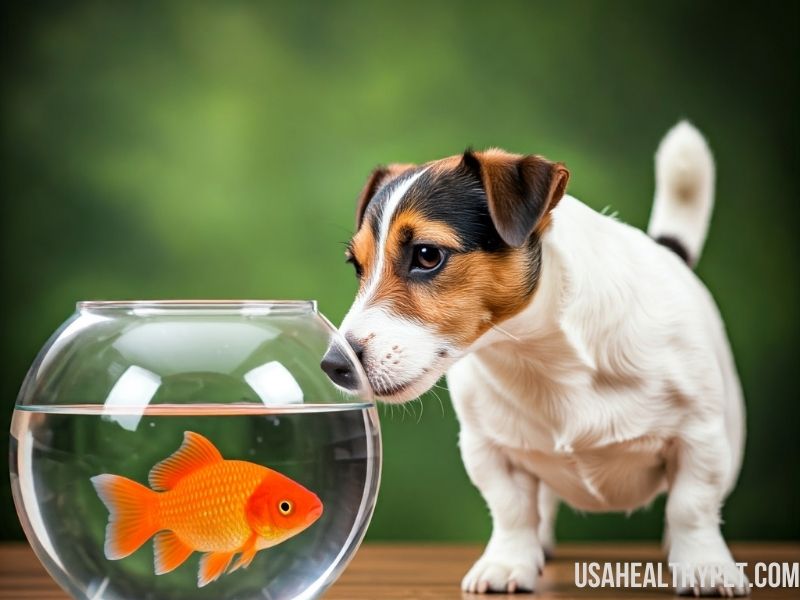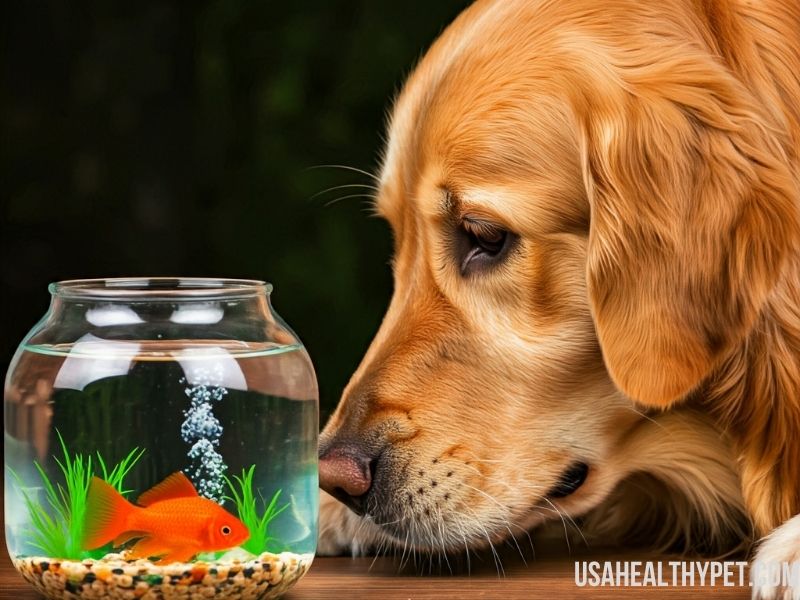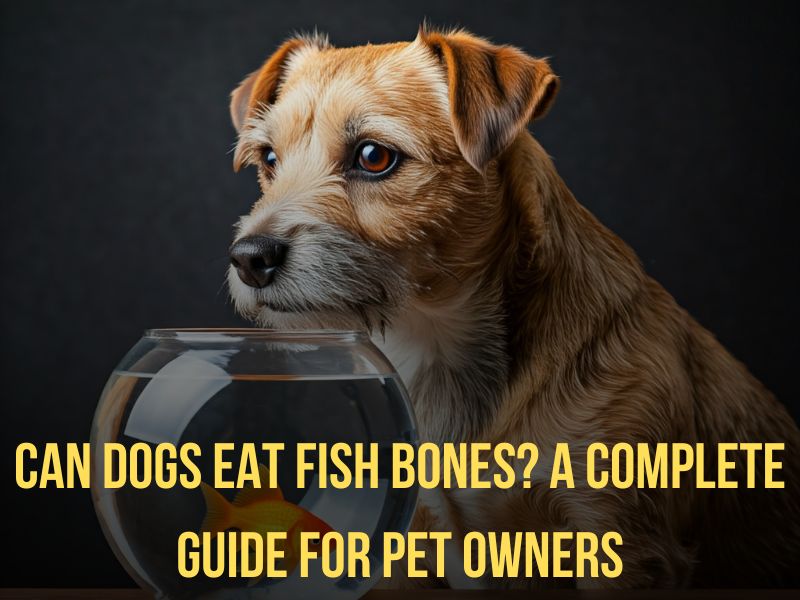We all want the best for our furry friends, and that includes making sure they’re eating safe, healthy food.
So, Can dogs eat fish bones? You might have heard different opinions on this, but let’s dive into the facts to clear up any confusion.
Dogs love fish, and we know it’s a great source of protein and omega-3s, but does that mean you should toss them the leftovers from your fish dinner? When it comes to fish bones, there’s more to the story. Let’s break it down.
Why Do Dogs Like Fish?
If you’ve ever noticed your dog sniffing around when you’re cooking fish, it’s because fish has a strong scent that dogs find irresistible.
Plus, fish is packed with protein and healthy fats, which are just as good for dogs as they are for humans. Dogs, by nature, are carnivores, so it’s no surprise that they’re drawn to a good piece of fish.
But does that mean all parts of the fish are safe? Not exactly, especially when it comes to bones.
Are Fish Bones Safe for Dogs?
In short, fish bones are not safe for dogs. Fish bones, whether cooked or raw, can cause serious problems for your pup.
Unlike some animals that can handle bones with ease, dogs are not designed to chew or digest small, brittle fish bones. These tiny bones can be sharp and dangerous.

Dangers of Fish Bones for Dogs
Let’s get into the specifics of why fish bones are such a risk for your dog.
a. Choking Hazards
Fish bones are small, thin, and sharp. This makes them easy for your dog to choke on. They can get lodged in your dog’s throat, making it hard for them to breathe.
Imagine trying to swallow a tiny needle—that’s what it feels like for your dog when they choke on a fish bone.
b. Internal Injuries
Even if the fishbone passes your dog’s throat, it doesn’t mean they’re in the clear. Fish bones can splinter and cause serious injuries as they travel through your dog’s digestive system.
These sharp fragments can cut or puncture the lining of the stomach or intestines, leading to internal bleeding.
c. Blockages
In some cases, fish bones may not cause immediate injury but can cause blockages in your dog’s intestines.
This is particularly dangerous because it can prevent food and water from passing through, leading to severe health complications like vomiting, dehydration, and even death if not treated quickly.
Cooked vs. Raw Fish Bones: Which Is Worse?
You might be thinking, “Maybe raw fish bones are safer than cooked ones?” Unfortunately, that’s not the case. Both cooked and raw fish bones pose risks.
Cooked bones are especially dangerous because they become more brittle and prone to splintering, but raw bones can still cause blockages or internal injuries. Either way, fish bones should be off the menu for your pup.
Signs Your Dog May Have Eaten Fish Bones
If your dog has accidentally eaten fish bones, it’s important to recognize the warning signs. Here’s what to look for:
- Coughing or gagging (a sign of choking)
- Drooling excessively
- Difficulty swallowing
- Pawing at the mouth or face
- Vomiting or retching
- Abdominal pain or swelling
- Lethargy or restlessness
If you notice any of these symptoms, it’s crucial to act fast.

What to Do If Your Dog Eats Fish Bones
Don’t panic if your dog swallows fish bones! The first thing you should do is remain calm and follow these steps:
- Check for signs of choking: If your dog is choking, try to carefully remove the bone with your fingers, but be careful not to push it further down.
- Contact your vet immediately: Even if your dog seems fine, it’s a good idea to consult your vet. They may recommend bringing your dog in for an examination.
- Monitor your dog closely: Watch for any signs of distress, such as vomiting, lethargy, or discomfort, and take action if you notice any of these symptoms.
Are There Fish Bones That Are Safe for Dogs?
The simple answer is no. Fish bones of any kind—whether from salmon, trout, or tilapia—are not safe for dogs. The risk of injury is too high, so it’s best to avoid giving them bones altogether.
Safe Ways to Feed Fish to Your Dog
Fish is healthy for dogs, but you have to be careful about how you serve it. Here are some safer options:
a. Boneless Fish
If you want to share fish with your dog, make sure it’s completely boneless. You can find boneless fish fillets at most grocery stores, and these are a much safer option.
b. Fish Oil Supplements
If you’re looking to give your dog the benefits of fish without the risk, fish oil supplements are a great alternative. These provide all the omega-3 fatty acids and health benefits without the worry of bones.
Best Fish Choices for Dogs
When choosing fish for your dog, it’s best to stick with varieties that are lower in mercury and fully cooked. Here are some safe options:
- Salmon (without bones)
- Sardines (a great source of omega-3s)
- Herring
- Trout
- Whitefish
These types of fish are not only safe but also packed with nutrients that can improve your dog’s coat, skin, and overall health.

Alternatives to Fish Bones for Dogs
If you’re looking for a crunchy snack for your dog, there are plenty of safer options than fish bones. Here are a few alternatives:
- Dental chews: These are designed to satisfy your dog’s chewing instincts while promoting oral health.
- Rawhide bones: Though controversial, rawhide can be a safer alternative if chosen carefully and monitored.
- Synthetic bones: These are specifically made for dogs to chew on without the risk of splintering.
How to Prevent Your Dog from Eating Fish Bones
Prevention is key! Here are some tips to keep your dog from accidentally eating fish bones:
- Keep fish leftovers out of reach: Always clear the table and dispose of fish bones safely.
- Train your dog not to beg at the table: Teaching your dog not to beg can reduce the chances of them snatching something harmful.
- Supervise meal times: Keep a close eye on your dog when you’re eating fish to ensure they don’t sneak a bone.
The Importance of Consulting a Vet
When it comes to your dog’s health, it’s always best to err on the side of caution. If your dog eats fish bones or if you’re unsure about something, your vet should be your first call.
They can provide expert advice and guide you on what steps to take to keep your dog safe.
Conclusion
While fish can be a healthy addition to your dog’s diet, fish bones should be avoided at all costs. They present too many risks, from choking hazards to internal injuries.
If you want to share fish with your dog, opt for boneless fillets or fish oil supplements to ensure they get the benefits without the dangers.
As always, consult your vet if you have any concerns about your dog’s diet or if they accidentally swallow something they shouldn’t.
FAQs
1. Can dogs digest fish bones?
No, fish bones are not easily digestible for dogs and can cause serious health problems.
2. Is there any safe way to feed my dog fish bones?
No, it’s best to avoid feeding your dog fish bones altogether. Opt for boneless fish instead.
3. What fish is best for dogs?
Salmon, sardines, herring, and whitefish are excellent options as long as they are boneless and cooked.
4. What should I do if my dog shows no symptoms after eating fish bones?
Even if your dog seems fine, it’s still a good idea to contact your vet for advice.
5. Can small dogs eat fish bones?
No, the size of the dog doesn’t matter. Fish bones can be dangerous for dogs of all sizes.
